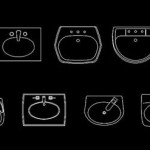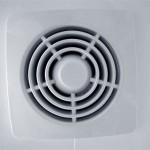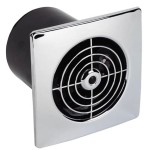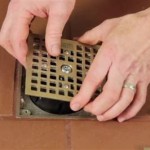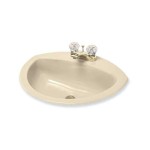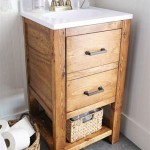Best Material for Bathroom Faucets
Choosing the right bathroom faucet involves more than just aesthetics. The material of the faucet significantly impacts its durability, performance, and maintenance requirements. Understanding the properties of various faucet materials allows homeowners to make informed decisions that align with their budget and desired longevity.
Brass remains a popular choice for bathroom faucets due to its inherent durability and resistance to corrosion. Solid brass faucets offer superior longevity and a higher-quality feel. Brass is an alloy primarily composed of copper and zinc, with the ratio influencing the material's properties. A higher copper content generally indicates better corrosion resistance. While more expensive than other options, brass faucets are a worthwhile investment for their long lifespan and resistance to wear and tear.
Zinc alloy faucets offer a budget-friendly alternative to brass. This material is lightweight and relatively easy to cast into various shapes, making it suitable for a wide range of faucet designs. However, zinc alloy is less durable than brass and more susceptible to corrosion over time. While protective coatings can enhance its resistance, zinc alloy faucets generally have a shorter lifespan compared to brass counterparts.
Stainless steel faucets are gaining popularity for their modern aesthetic and excellent corrosion resistance. Stainless steel is a strong and durable material that can withstand daily use and resist rust and stains. Its sleek appearance complements contemporary bathroom designs. While generally more expensive than zinc alloy, stainless steel offers a good balance between cost and durability. The grade of stainless steel used influences the faucet's performance and resistance to corrosion, with higher grades offering better protection.
Plastic faucets are the most economical option, typically used in less visible areas or temporary installations. While inexpensive and lightweight, plastic faucets lack the durability and longevity of metal options. They are more prone to cracking, breaking, and discoloration over time. Plastic faucets are generally not recommended for high-use bathrooms.
Ceramic disc cartridges are becoming increasingly common in modern faucets, regardless of the primary material used for the faucet body. These cartridges offer precise water flow control and are highly resistant to leaks and drips. Ceramic cartridges contribute to the overall longevity and smooth operation of the faucet.
Finishes play a crucial role in the faucet's appearance and resistance to wear. Chrome is a popular finish due to its bright, reflective appearance and resistance to tarnish and corrosion. Brushed nickel offers a more subdued, matte finish that hides fingerprints and water spots effectively. Oil-rubbed bronze provides a rustic, antique look, while matte black offers a contemporary aesthetic. The finish chosen should complement the overall bathroom design and personal preferences.
Considerations when selecting a faucet material include the bathroom's usage frequency, budget constraints, and desired aesthetic. High-traffic bathrooms benefit from the durability of brass or stainless steel, while less frequently used bathrooms may suffice with zinc alloy. The overall budget should also be considered, balancing the upfront cost with the long-term value of a durable faucet.
Maintenance requirements vary depending on the faucet material and finish. Regular cleaning with mild soap and water is generally recommended for all faucet types. Avoid abrasive cleaners, which can damage the finish and compromise the material's protective layer. Promptly addressing leaks and drips can prevent further damage and extend the faucet's lifespan. Periodic inspection of the faucet for any signs of wear or damage is essential for proactive maintenance.
Warranty information provides valuable insight into the manufacturer's confidence in the faucet's quality and durability. Longer warranty periods often indicate a higher-quality product. Reviewing the warranty terms and conditions before purchasing can provide peace of mind and protection against potential defects.
Installation complexity varies depending on the faucet type and design. Some faucets are designed for easy DIY installation, while others may require professional plumbing services. Considering the installation requirements and associated costs is essential when making a selection.
Water efficiency is an increasingly important factor to consider when choosing a faucet. Look for faucets with WaterSense certification, which indicates that the faucet meets EPA standards for water efficiency without sacrificing performance. WaterSense certified faucets can help conserve water and reduce utility bills.
Style and Design options are abundant, ranging from traditional to contemporary styles. Consider the overall bathroom design and choose a faucet that complements the existing fixtures and décor. Factors such as handle type, spout height, and overall size should be considered to ensure the faucet fits the available space and meets functional requirements.
Accessibility features are important considerations for individuals with mobility challenges. Lever-style handles are generally easier to operate than traditional knob handles. Touchless faucets offer hands-free operation, enhancing convenience and hygiene. Consider incorporating accessibility features when selecting a faucet for universal design principles.

How To Choose The Best Material For Bathroom Fixtures

How To Choose The Best Material For Bathroom Fixtures

How To Choose The Best Material For Bathroom Fixtures

4 Bathroom Faucet Finishes For Your Metropolitan Bath Tile

How To Choose The Best Material For Bathroom Fixtures

How To Choose The Best Material For Bathroom Fixtures

6 Best Brands Of Luxury Bathroom Faucets An Expert Ysis

Bathroom Faucet Guide

How To Choose The Best Material For Bathroom Fixtures

Best Bathroom Faucets For Your Home The Depot
